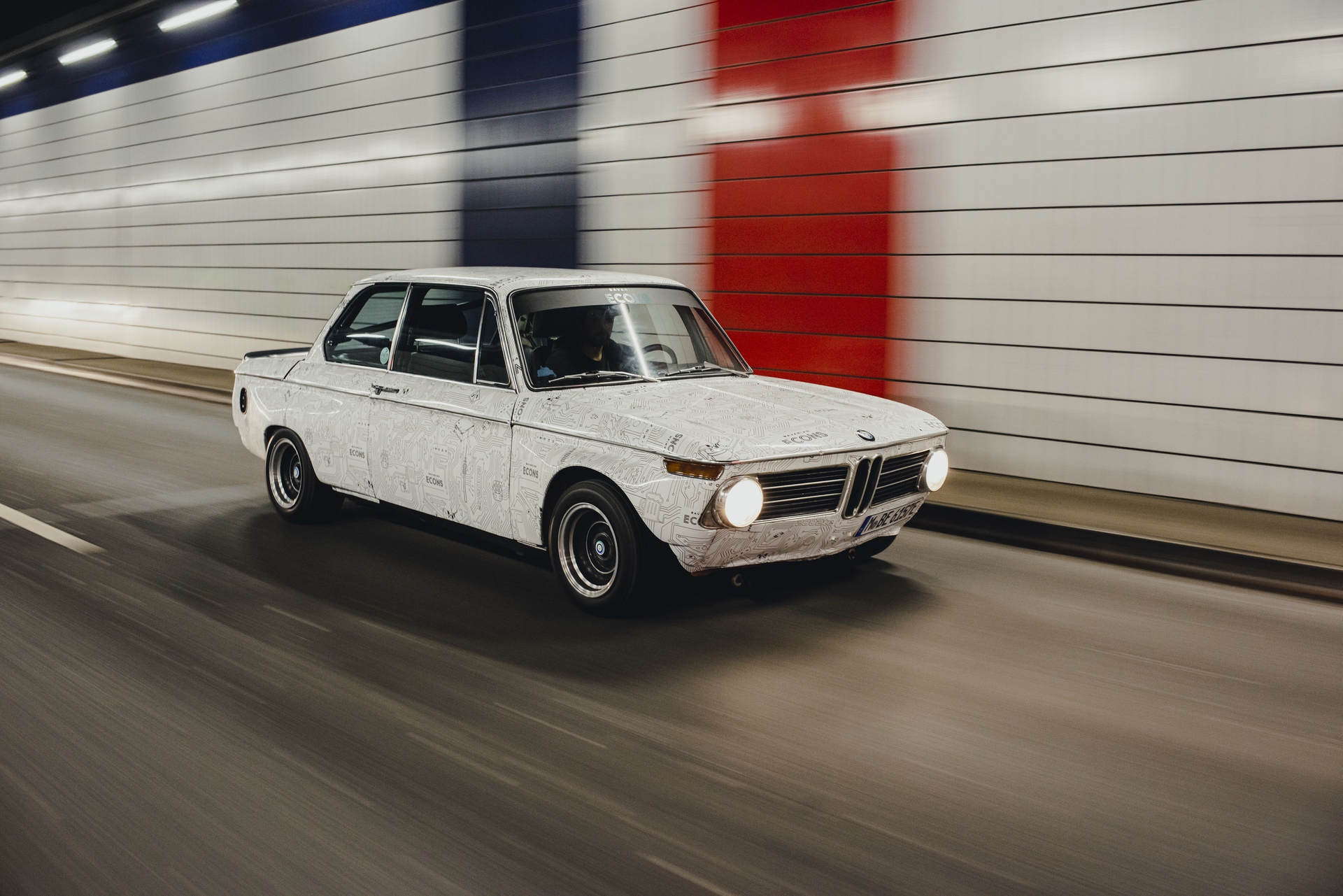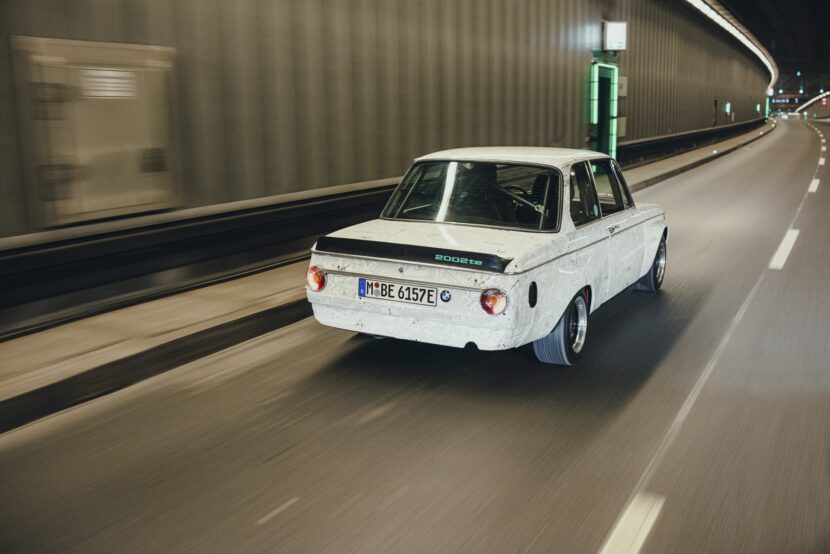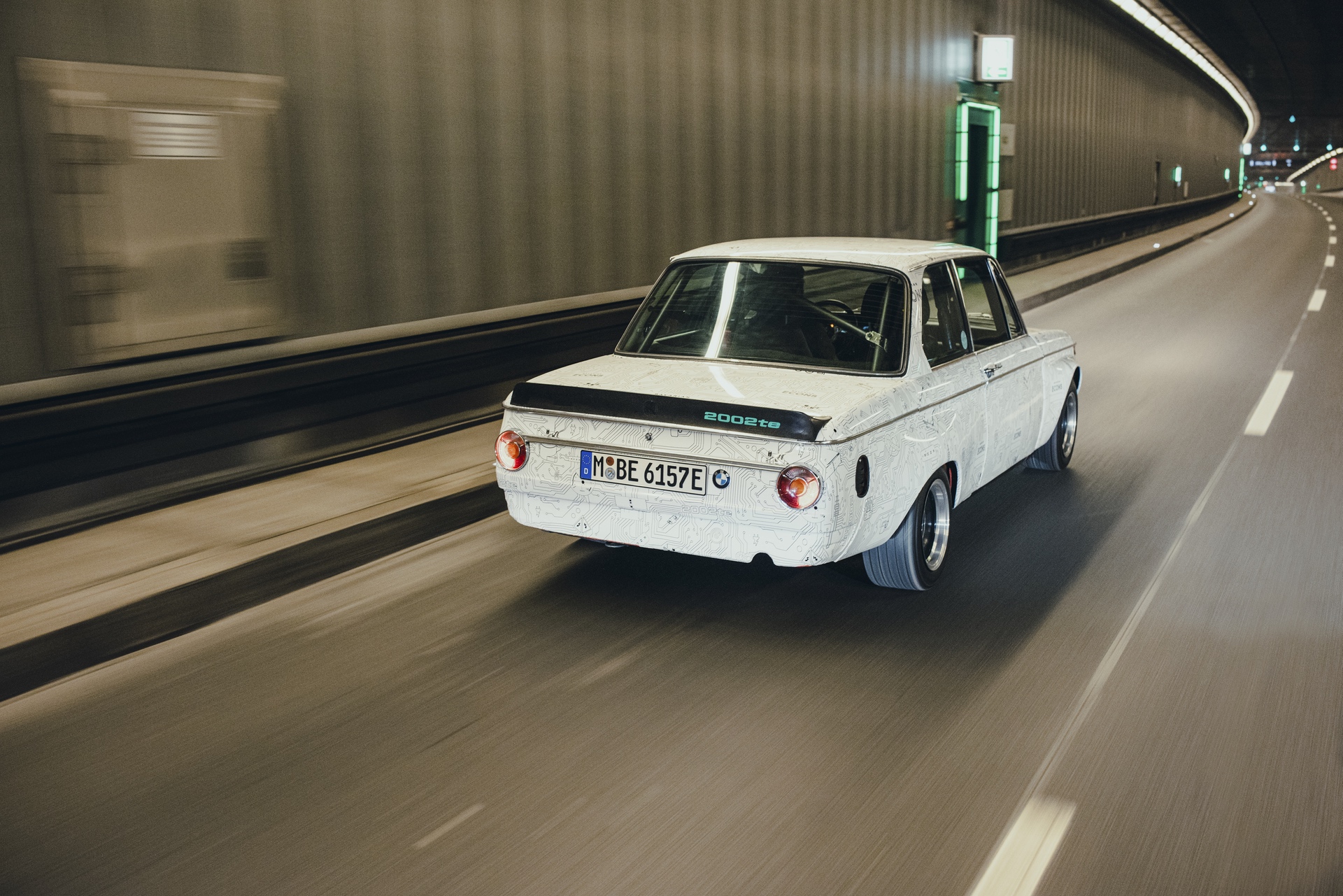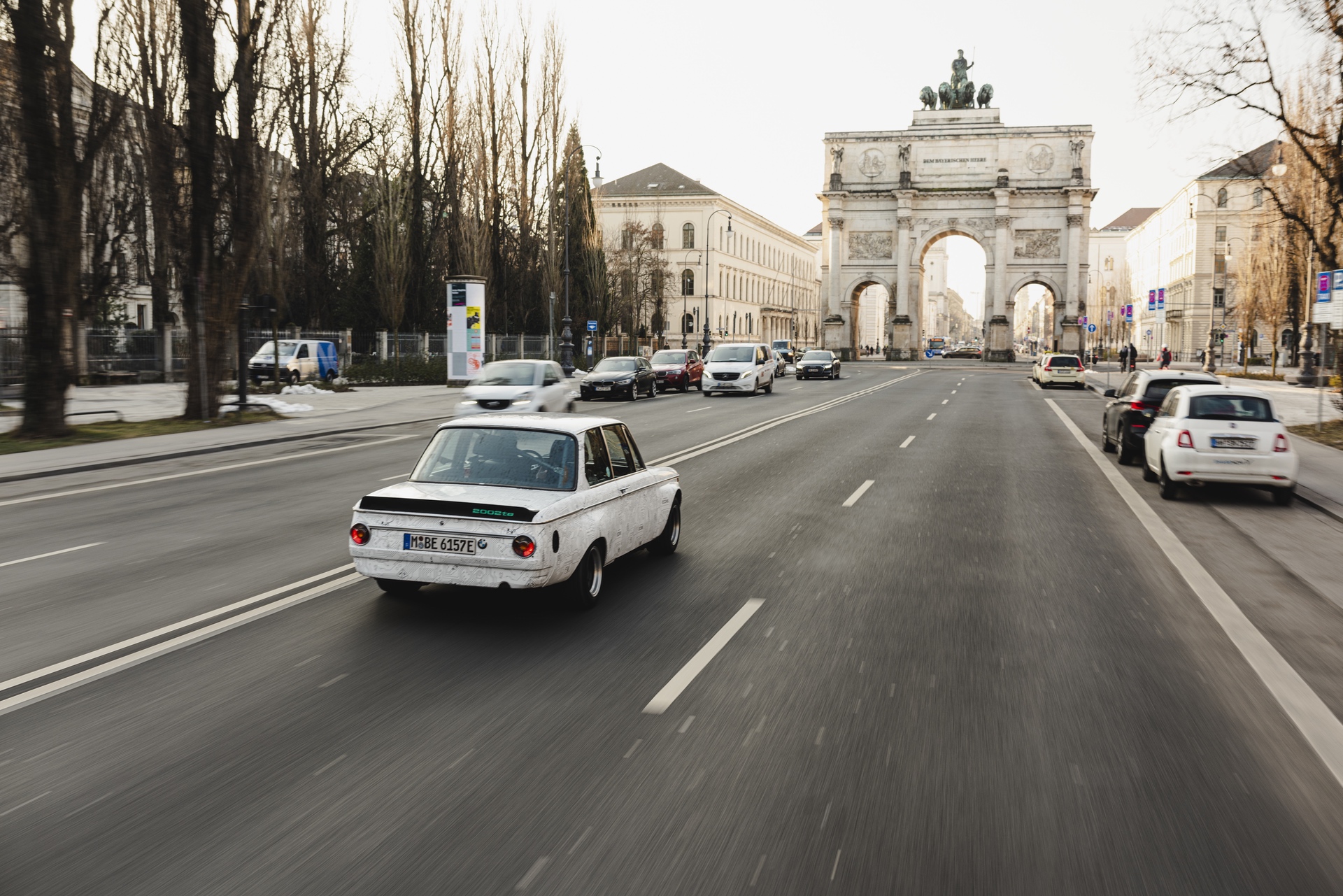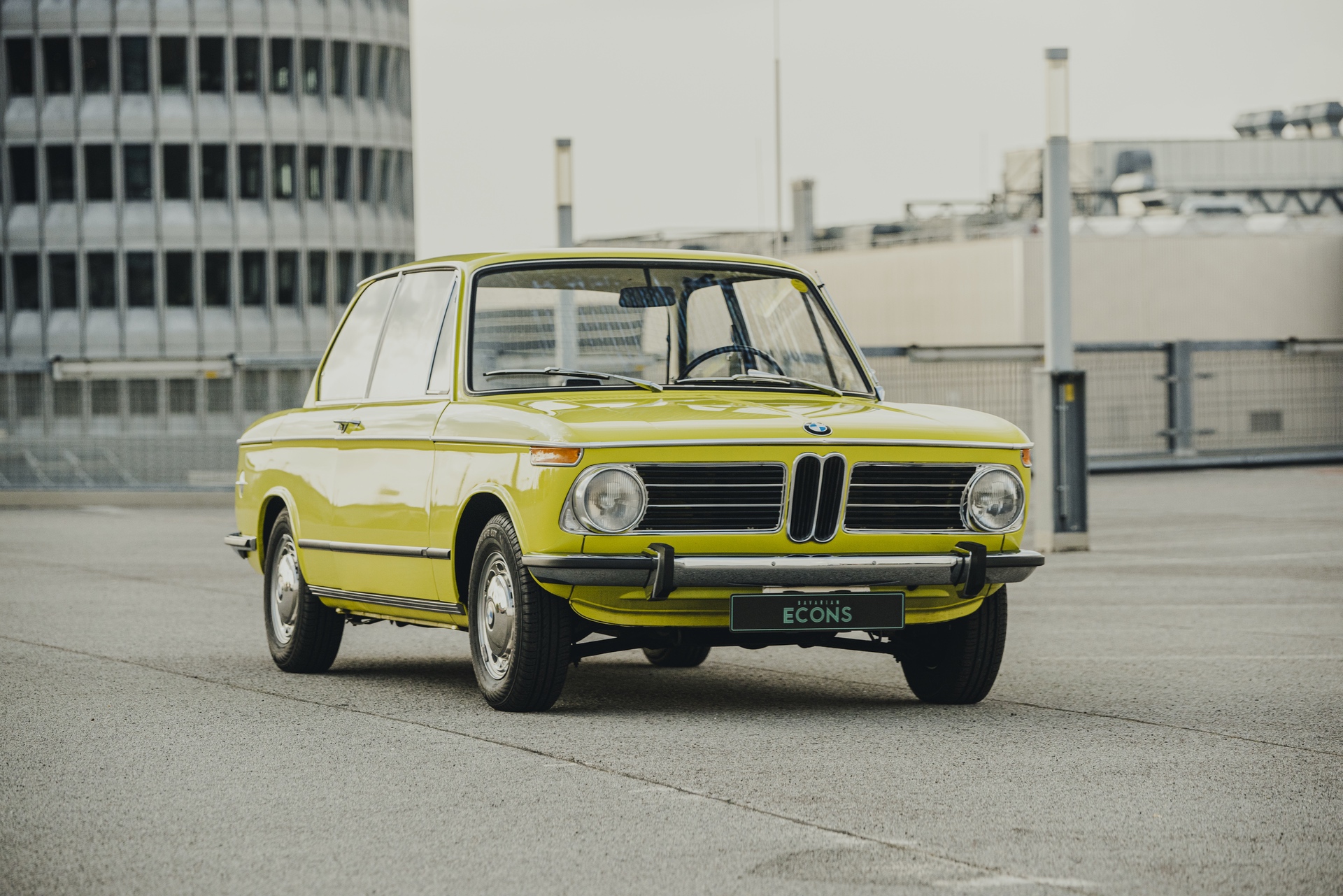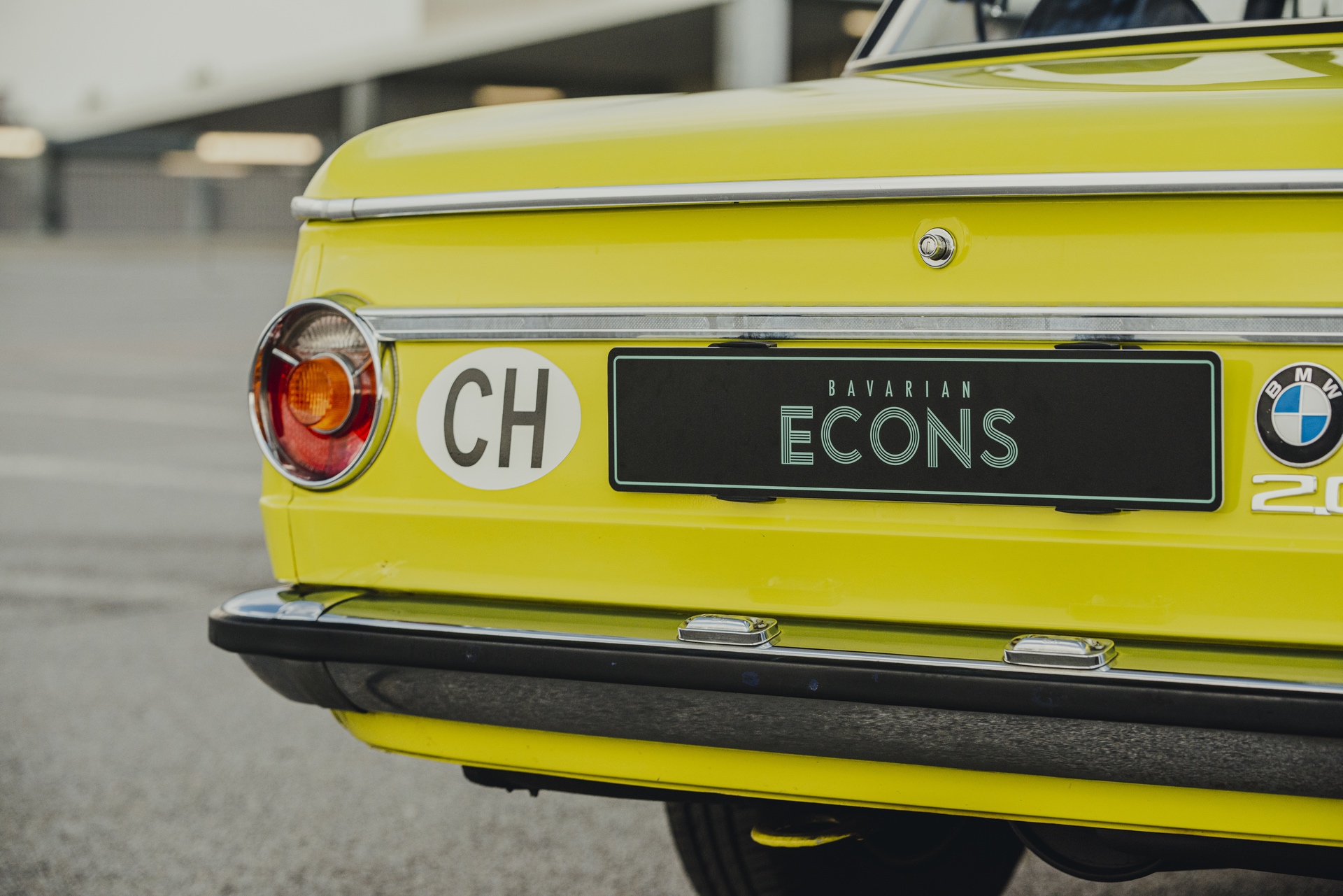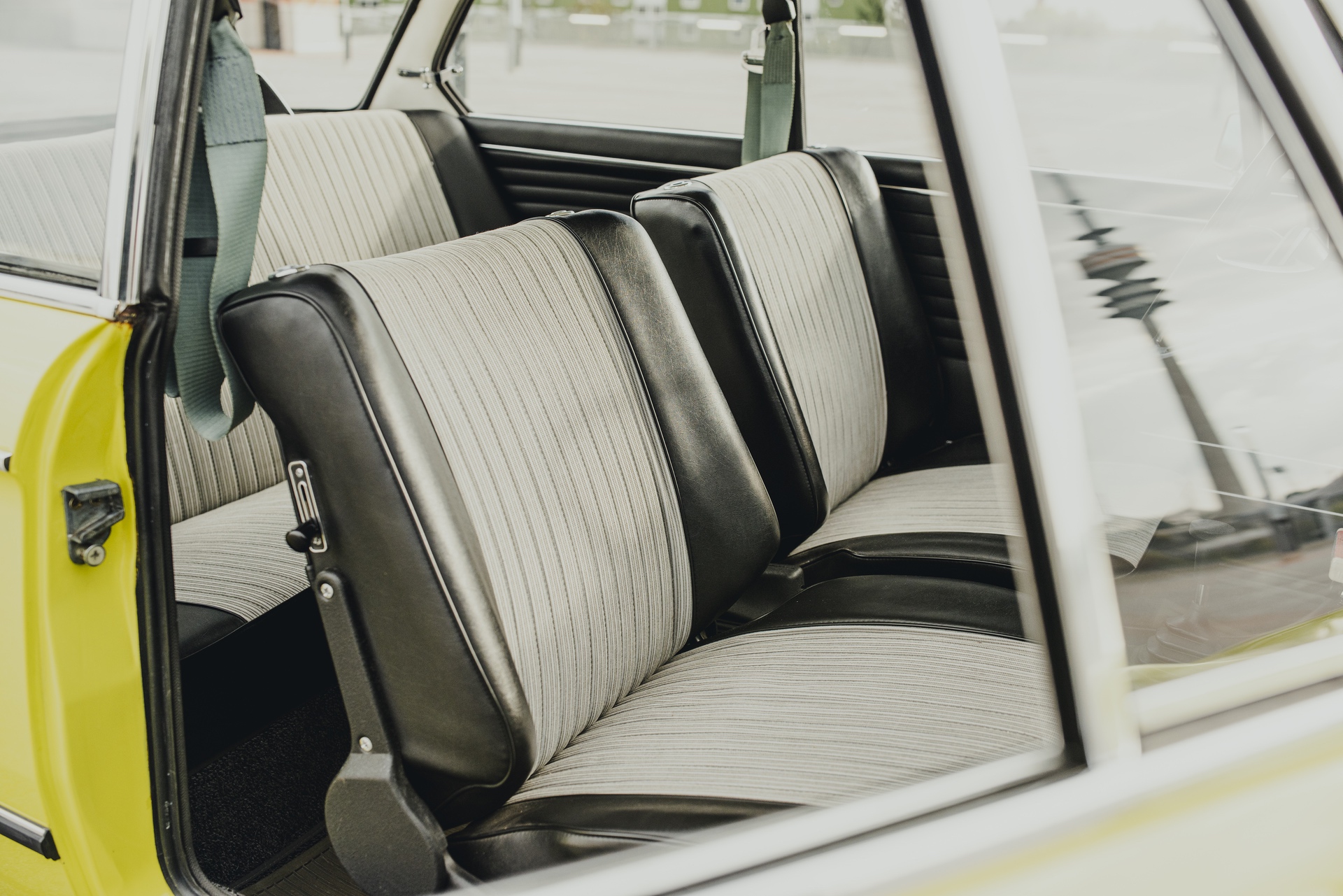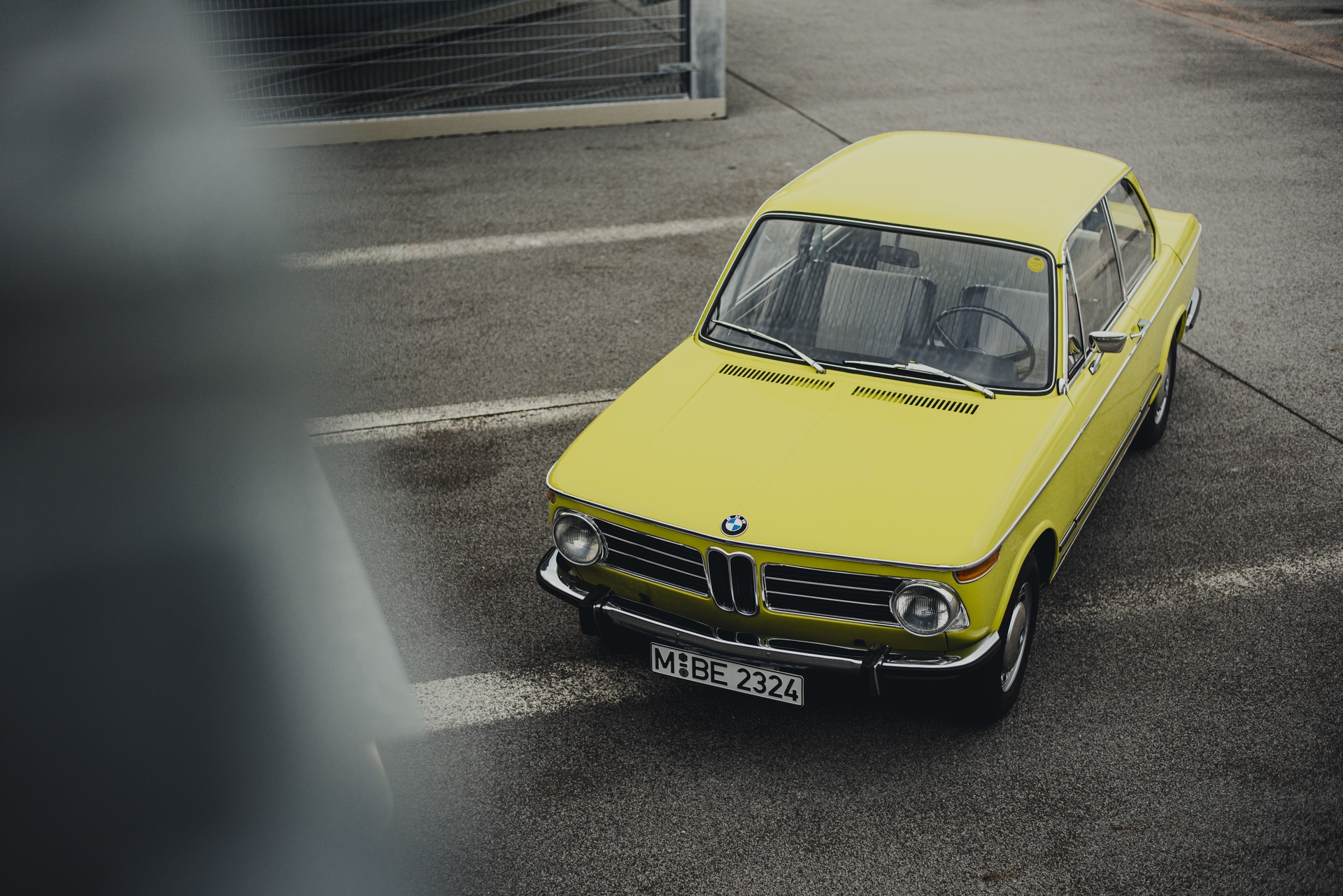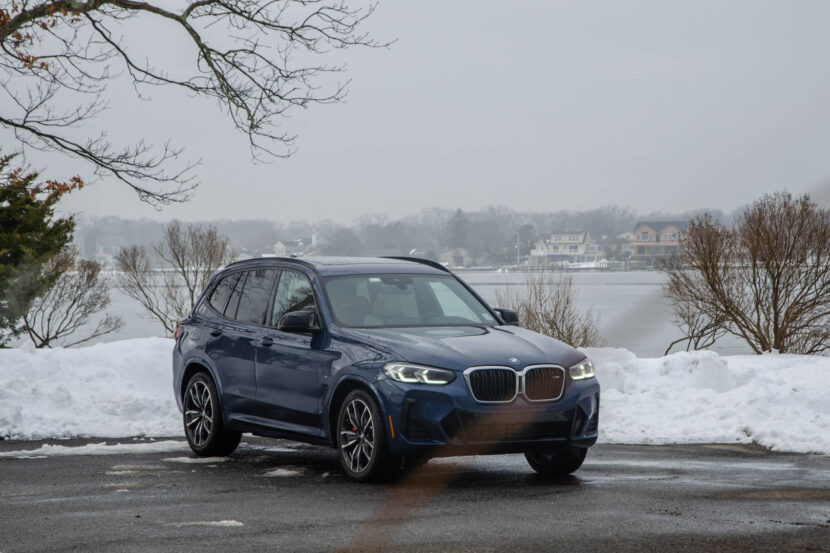BMW hasn’t signaled its intentions towards bringing back an old icon for the upcoming electric era. Ok, the Neue Klasse is returning for EVs, but it won’t be a car per se. Instead, it’s the name used by a newly developed platform arriving in 2025 for a family of zero-emissions cars. Meanwhile, German-based Bavarian Econs Tech Gmbh is resurrecting the classic 2002. Meet the 2002te.
It’s a restomod, but not with a modern combustion engine. Instead, the oily bits are removed altogether to fit an all-electric powertrain. Following a video released last month with the 2002te lapping the Nürburgring, we’ve managed to get a hold of the brochure.
Consequently, we now have all the details about the BMW 2002 turned into an EV. It retains the rear-wheel-drive layout, but with an electric motor mounted at the back. It produces 161 horsepower (120 kilowatts), which doesn’t sound overly impressive. The same can be said about torque as the e-motor generates just 170 Newton-meters (231 pound-feet). However, the 2002te weighs only 1,150 kilograms (2,535 pounds).
Push it hard and it’ll do 0 to 60 mph (96 km/h) in a respectable 6.2 seconds before topping out at 150 mph (241 km/h). With a fully charged battery, Bavarian Econs says you’ll be able to cover 180 miles (290 kilometers). As always with EVs, range will greatly depend on your driving style.
The 2002te Comes In Two Flavors
There are two configurations available: Elektro and Econ. The former is simply an ICE to EV conversion as everything else remains intact while production is not limited. The latter will be capped at five cars for the next two years and bumps output to 250 hp. Aside from the extra oomph, it gets hand-built fenders and a custom interior using sustainable materials. In addition, Bavarian Econs says the sky is the limit when it comes to personalizing the 2002te Econ.
“We are born from the passion for BMW classics, our pursuit to a more sustainable future and our need to extend and renew the legacy and pleasure of driving these jewels for future generations,” says Nicolas Navarro, CEO Bavarian Econs. “Our love for these classics motivated us to redesign them to today’s standard and giving them the life they deserve,” Navarro added.
There will likely come a day when gasoline won’t be readily available anymore, so these conversions should gain more traction. That said, some automakers are thinking of alternatives to keep old cars on the road, primarily through synthetic fuels or hydrogen-fueled combustion engines. For the time being, adopting an electric setup is the way to go.
Source: Bavarian Econs


